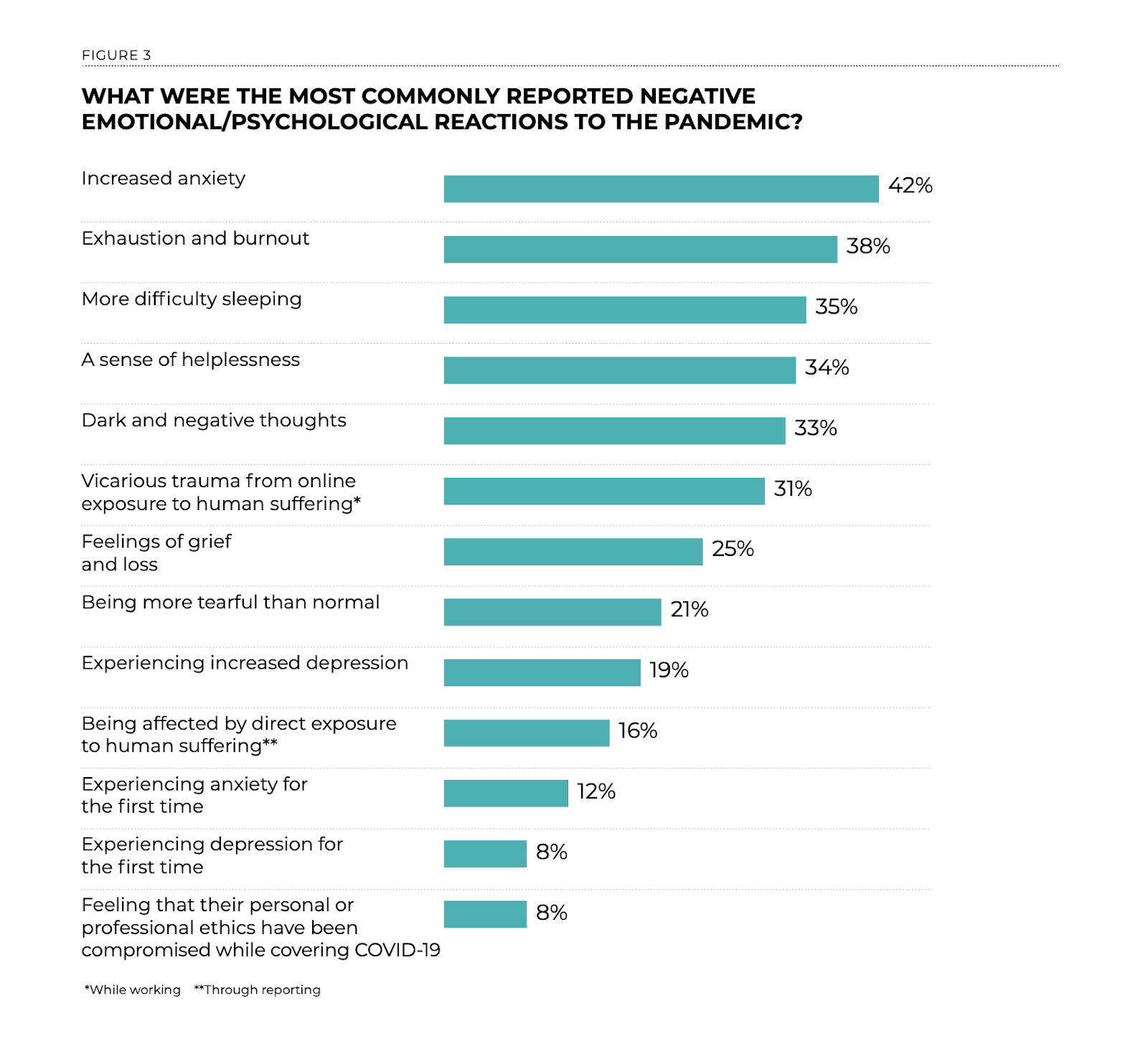
The COVID-19 pandemic has impacted many journalists and newsrooms in one way or another. Whether it’s burnout from working extra hours, layoffs at a local news publication, or misinformation spreading in WhatsApp groups, the health crisis has placed extra pressure on an industry already facing an uncertain future.
To better understand the effects of the pandemic on the news industry worldwide, the International Center for Journalists (ICFJ) – IJNet’s parent organization – teamed up with the Tow Center for Digital Journalism at Columbia University to conduct a survey of journalists in seven languages. Today, they released the preliminary results of their English-language survey, which are based on responses from 1,406 respondents across 125 countries.
The Journalism and the Pandemic Survey explores journalists’ physical and mental health, the spread of mis/disinformation, the economic effects on newsrooms, changes in the way journalists work and challenges to press freedom.
“Our report demonstrates that journalists are working in a severely pressured financial, physical and psychological environment during the pandemic,” wrote researchers Emily Bell, Julie Posetti and Pete Brown. “This will be the most enduringly difficult professional period many have experienced during their careers.”
We explore a few of the key findings below. Readers can find all 30 findings in the full report here.
Journalists’ mental and physical health
Journalists are struggling to cope with the psychological toll of reporting during the COVID-19 crisis, researchers found.
The report lays bare the widespread extent of the issue: 70% of respondents rated the psychological toll as their biggest challenge during the pandemic –– the most common response. More than 80% of respondents noted at least one negative psychological effect, including anxiety, burnout, difficulty sleeping and a sense of helplessness.

Despite the challenges, many employers fall flat in their level of support. Over 70% of respondents said that employers failed to offer flexible hours, time off, social support or regular check-ins, to name a few.
The data doesn’t indicate much better support for journalists’ physical health, despite the worldwide health crisis. One in four respondents are still traveling to the field at least once per week to report, yet many respondents noted a failure by their employer to provide adequate protective equipment for field reporting. Perhaps most shocking, 45% were not even provided a mask when they conducted in-person reporting.
Widespread mis/disinformation
As early as February, the World Health Organization cautioned that the world wasn’t just fighting a deadly virus, but an information crisis. This “disinfodemic” is no secret to the journalists tasked with providing factual information to their audience. Over 80% of respondents said they came into contact with misinformation on a weekly basis.
by Taylor Mulcahey, International Journalists’ Network
Related posts
Category: Uncategorized
Malnutrition is a health crisis affecting millions around the world — and one becoming more urgent as the pandemic continues. Its impact is not just represented in […]
Magazine Training International’s mission is to encourage, strengthen, and provide training and resources to Christian magazine publishers as they seek to build the church and reach their societies for Christ.

